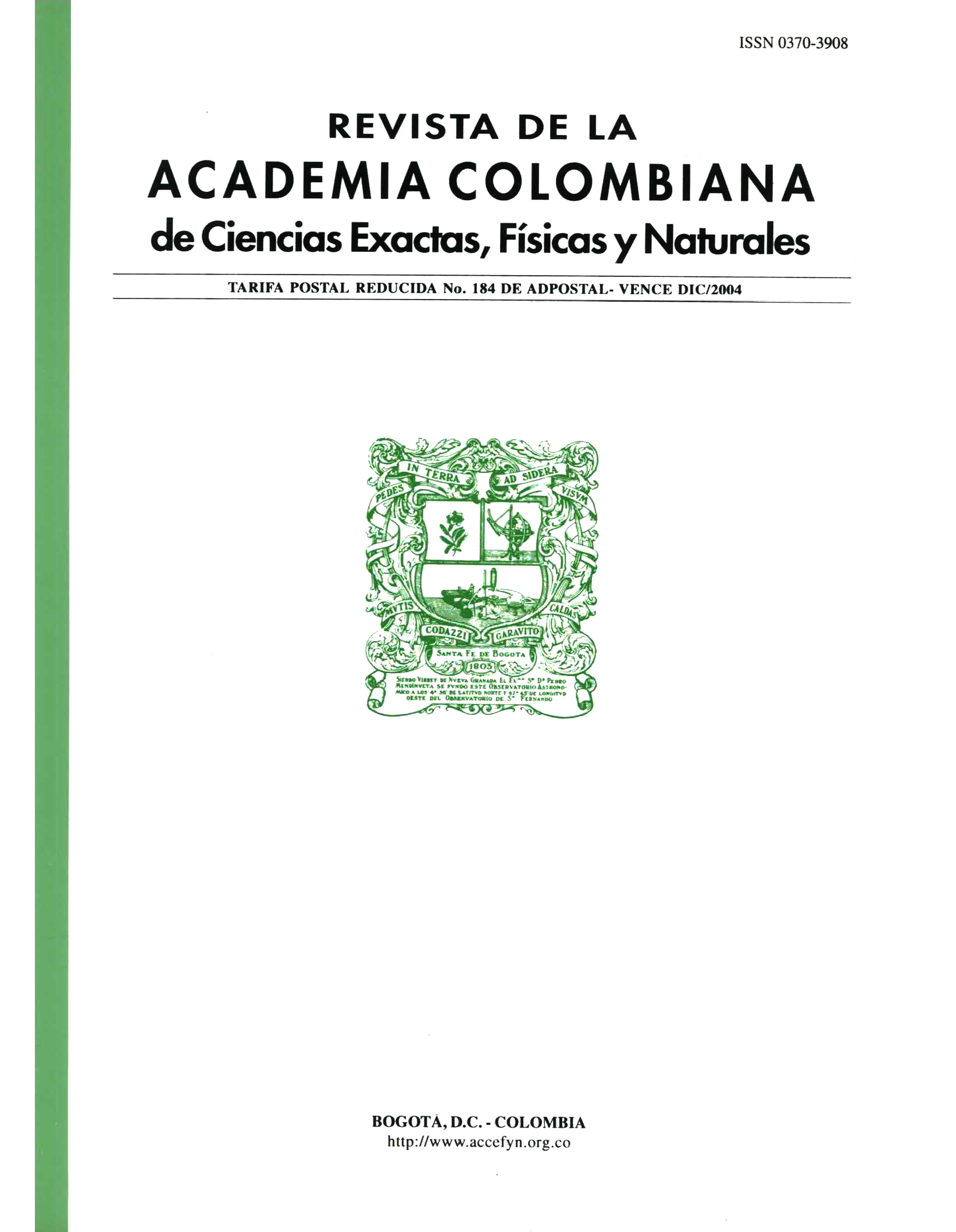Abstract
The area of the Sabana de Bogotá is a wide intra-Andean valley whose geomorphologic and geologic patterns have not been fully explained. One of these patterns is the ample coverage of soils derived from volcanic sources, for which two explanations have been given: the first one is to assume that the tuffaceous cover in the Sabana must have originated from the Central Cordillera vulcanism, which is at a distance of about 150 kilometers. With time, this assumption has been discarded due to the obvious petrographic differences between the volcanic materials of the Central Cordillera and those of the Sabana. The second explanation claims as origin the volcanic focuses of Paipa and Iza, some 150 kilometers away.
The present article proves that the pyroclastics of the Sabana de Bogotá had their origin in volcanic focuses within the Sabana proper, and that the Sabana volcanic events had a magnitude greater than those in Boyacá and could be considered their southern extension.
Keywords
References
Bürgl, H. 1961. Sedimentación Cíclica en el Geosinclinal Cretáceo de la Cordillera Oriental de Colombia: Boletín Geológico, Vol. VII, Nos. 1-3, págs. 85-118, 9 figs.
Romero, F. H. & Rincón, M. A. 1992. Características Petrográficas y Químicas de las Rocas Volcánicas de Iza (Departamento de Boyacá, Colombia): Geología Colombiana, 17, págs. 159-168.

This work is licensed under a Creative Commons Attribution-NonCommercial-NoDerivatives 4.0 International License.
Copyright (c) 2023 https://creativecommons.org/licenses/by-nc-nd/4.0





